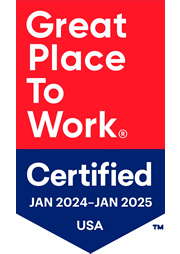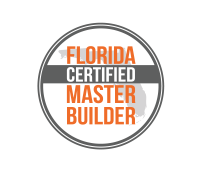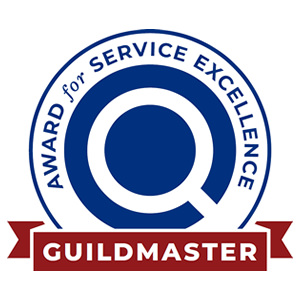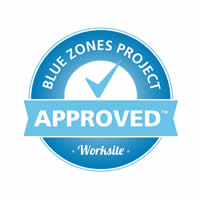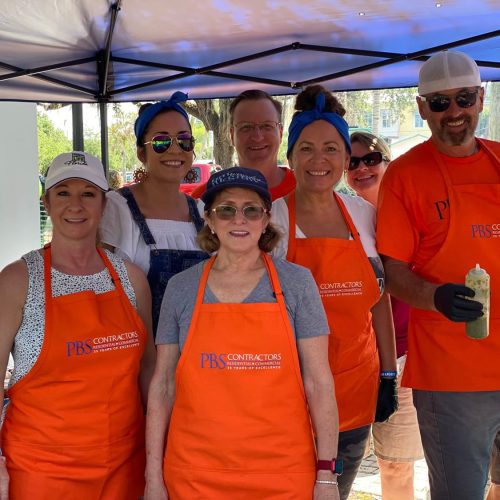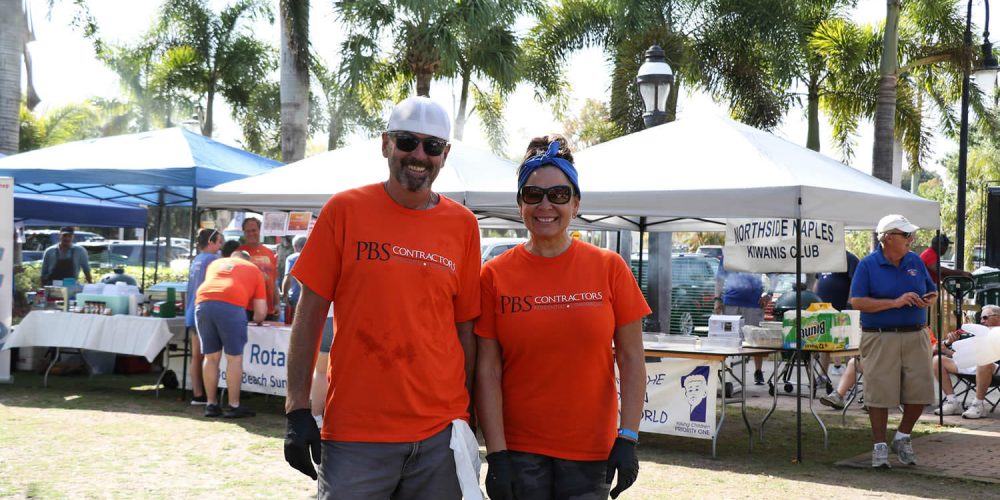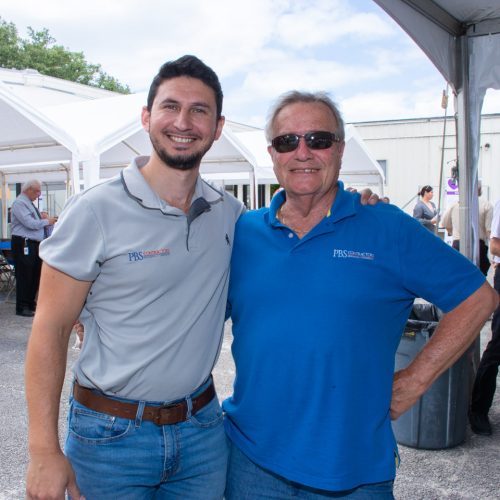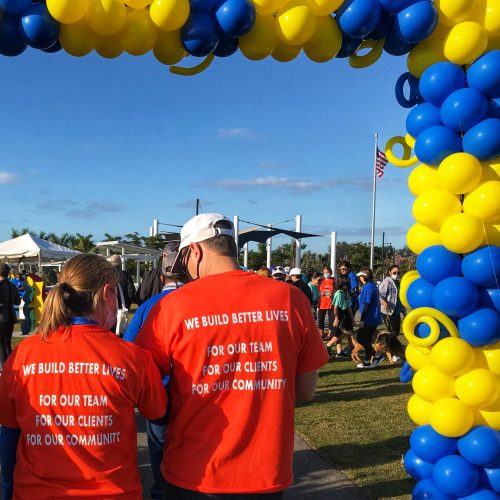1
BE CONCIERGE.
Be proactive. Anticipate customer needs. Solve problems before they happen by anticipating future needs and addressing them today. Preventing issues is always more2
DO THE RIGHT THING, ALWAYS.
Demonstrate an unwavering commitment to doing the right thing in every action you take and in every decision you make, especially when no one’s looking. Always tell the truth. If you make a mistake, own up to it, apologize, and make it right.3
BE A GREAT TEAM MEMBER.
Huddle Up! Together we are better. Consider how your actions impact other team members. Be willing to step into another role or help a co-worker when that’s what’s required for success. Work together and collaborate. We’re all responsible for quality and for customer service.4
BE PROCESS ORIENTED.
Have a bias for structure. Learn to create systems and processes that support our ability to perform with consistency. Strong processes are the foundation of organizational effectiveness.5
HONOR COMMITMENTS.
There’s no better way to earn people’s trust than to be true to your word. Do what you say you’re going to do, when you say you’re going to do it. This includes being on time for all phone calls, appointments, meetings, and promises. If a commitment can’t be fulfilled, notify others early and agree on a new timeframe to be honored.6
INVEST IN RELATIONSHIPS.
Keep in mind that our goal is to create long-term success. Consider the effect your actions and decisions will have on cultivating long-term partnerships. Make decisions that build and enhance7
MAKE QUALITY PERSONAL.
Take pride in the quality of everything you touch and everything you do. Always ask yourself, “Is this my best work?” Everything you touch has your signature. Sign in bold ink.8
PAY ATTENTION TO DETAILS.
Details matter. Be a fanatic about accuracy and precision. The goal is to get things right, not simply to get them done. Double check your work. Measure twice and cut once. Get the details right the first time.9
EMBRACE CHANGE.
Change creates energy and excitement. Be inspired by both the challenges and the possibilities that change brings. The better we are at managing change, the stronger and more successful we become as a company.10
BE RELENTLESS ABOUT CONTINUOUS IMPROVEMENT.
Regularly reevaluate every aspect of your job to find ways to improve. Guard against complacency and don’t ever be satisfied with the status quo. “Because we’ve always done it that way” is not a reason. Demonstrate a hunger for knowledge and take responsibility for your career by being a lifelong learner.11
PRACTICE BLAMELESS PROBLEM SOLVING.
Blame has no place in a high performance organization. Fix mistakes by focusing on solutions, not on whose fault it was. Processes fail, not people. Learn to ask questions that begin with “What” and include the word “I” such as “What can I do to fix this problem?” Use these situations to learn, and then apply that learning by improving our processes to reduce the likelihood of repeating the same mistake.12
BE FULLY ENGAGED - BRING YOUR WHOLE SELF.
Approach every day with focus, energy, urgency, and enthusiasm. Be fully engaged. Be passionate about the difference we make in people’s lives. Passion is the energy that fuels truly extraordinary performance. Make the most of each day by approaching every task with energy, focus, purpose, and enthusiasm. Don’t put off till13
WORK HARD, BUT REMEMBER THAT THERE’S MORE TO LIFE.
Stay happier, healthier, and more productive by balancing your time between work, community activities, family life, emotional/spiritual development, and physical fitness.14
WORK ON YOURSELF.
Be a lifetime learner. Seek out and take advantage of every opportunity to gain more knowledge, to increase your skills, and to become a greater expert. Be resourceful about learning and sharing best practices.15
CHECK YOUR EGO AT THE DOOR.
It’s not about you. Don’t let your own ego or personal agenda get in the way of doing what’s best for the team. Worrying about who gets credit or taking things personally is counterproductive. Make sure every decision is based16
ASSUME POSITIVE INTENT.
Work from the assumption that people are good, and that the intent behind their actions is positive. Set aside your own judgments and preconceived notions. Give people the benefit of the doubt.17
LISTEN GENEROUSLY.
Listening is more than simply “not speaking.” Give others your undivided attention. Be present and engaged. Quiet the noise in your head and let go of the need to agree or disagree. Listen with care and with empathy. Above all, listen to understand.18
SPEAK STRAIGHT.
Speak honestly in a way that moves the action forward. Make clear and direct requests. Say what you mean, and be willing to share ideas or raise issues that may cause conflict when it’s necessary for team success. Address issues directly with those who are involved or affected.19
FIND A WAY.
Take personal responsibility for making things happen – somehow, someway. Respond to every situation by looking for how we can do it, rather than explaining why it can’t be done. Be resourceful and follow up everything to see that it gets completed. Make stuff happen.20
TAKE RESPONSIBILITY FOR ACHIEVING RESULTS.
While we appreciate effort, we reward and celebrate results. Excuses don’t get the job done. Embrace numbers and accountability. Metrics help us understand how we’re doing and how we can improve our performance. Hold yourself accountable for achieving results. We get paid for results, not activity.21
SET AND ASK FOR EXPECTATIONS.
Create clarity and avoid misunderstandings by discussing expectations upfront. Establish mutually understood and achievable objectives, specifications, and deadlines for all projects, designs, issues, and commitments with both internal and external customers.22
CELEBRATE SUCCESS.
Recognizing people doing things right is more effective than pointing out when they do things wrong. Regularly extend meaningful acknowledgment and appreciation – in all directions throughout our organization.23
THINK SAFETY IN EVERYTHING YOU DO.
Safety and health are not just words, but a way of life. Know and practice the safety procedures for your job. Be concerned for the health and safety of your teammates as well. Don’t take short cuts.24
BE FANATIC ABOUT RESPONSE TIME.
People expect us to respond to their questions and concerns quickly, whether it’s in person, on the phone, or by e-mail. This includes simply acknowledging that we got the question and we’re “on it,” as well as keeping those involved continuously updated on the status of outstanding issues. Rapid response is one of the easiest and best ways to stand out from the crowd.25
CREATE A GREAT FIRST IMPRESSION.
Make every interaction be friendly, warm, and helpful. Always identify yourself, use people’s names, and smile. Be personally engaged, for people don’t care how much you know until they know how much you care. Genuine compassion can’t be faked.26
BE CLIENT FOCUSED.
Understand your customer’s world, including their work rules and culture. Know their challenges and frustrations. See the world from their perspective. Treat them the way you would want to be treated if the roles were reversed. The better you understand them, the more effectively you can anticipate and meet their needs.27
BUILD A BETTER LIFE FOR SOMEONE TODAY.
Regularly seek out opportunities to assist those in need, both individually and through coordinated team activities. Express gratitude for the help you’ve been given by paying it forward and helping others.28
HAVE FUN.
Remember that the world has bigger problems than the daily challenges that make up our work. Stuff happens. Keep perspective. Don’t take things personally or take yourself too seriously. Laugh every day and enjoy the journey we’re on together.


